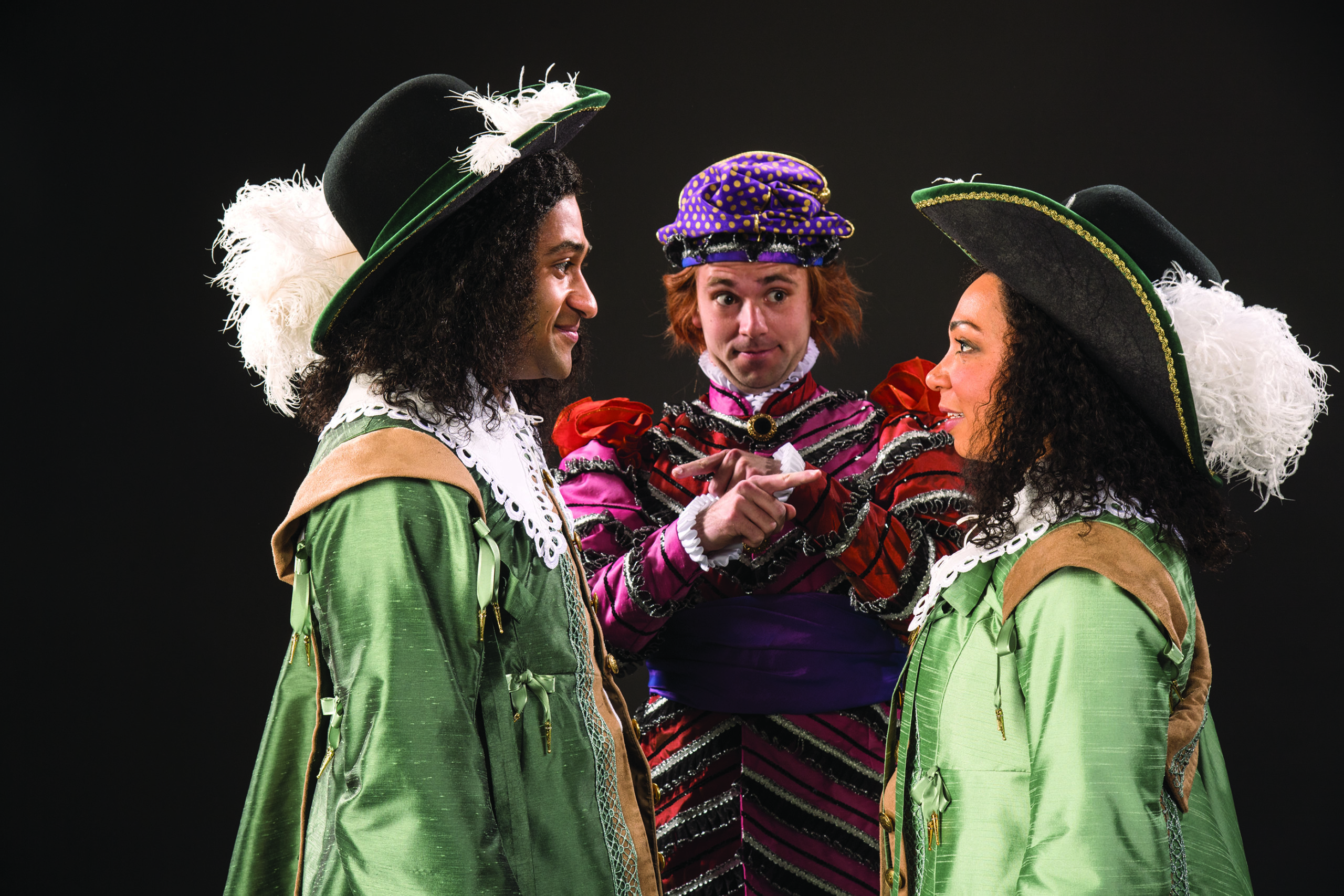CEDAR CITY — The Utah Shakespeare Festival‘s production of Twelfth Night is the type of production that gets people hooked on Shakespeare. Every scene bursts with pleasure and enjoyment, and there is no better way to spend a summer evening than to attend this show.

Director Sam White has created my favorite version of Twelfth Night. White infuses each scene with a playfulness that keeps the action lighthearted. This playfulness keeps the banter lively and primes the audience for laughter. White is skilled at crafting any type of humor, and her staging overflows with both physical and verbal humor, impeccably timed to maximize hilarity. I was especially delighted in the zany upstage reactions of Maria, Sir Toby Belch, and Sir Andrew Aguecheek as Malvolio discovers the love note they had forged for him. This scene is one long crescendo of visual jokes that pleased me in its zaniness. White is also a virtuoso of stage business; every action she gives to her actors is carefully plotted to reveal character traits or enhance the humor. (Sir Toby’s many hidden liquor flasks are an especially clever running joke.)
Sarah Hollis stars as Viola, and the actress makes headlining a Shakespeare play look deceptively easy. Hollis shows an ease with the role that is inviting because it makes Viola seem amiable, which increases the plausibility of the plot. Because Viola is so approachable, it makes sense that she is able to find employment in Duke Orsino’s home so quickly and why Olivia would fall in love with her alter ego, the boy Cesario. Hollis is also effective at evoking sympathy for Viola when she thinks her brother, Sebastian, is dead. Viola’s shock when she realizes that Olivia is in love with her is the perfect mix of nervousness and humor.

No one on stage is funnier than Chris Mixon as the absurd Malvolio. Mixon’s first scene establishes Malvolio as a blowhard with an over-inflated ego. The total lack of nuance fits with the mood White had established for the show and makes Malvolio’s later humiliation extremely rewarding. I loved how Malvolio had to practice smiling and his eagerness in showing off the famous cross-gartered stockings to Olivia.
This production’s Sebastian and Viola resemble each other quite a bit, which makes the cases of mistaken identity in the story understandable. However, Tristan Turner is not cast as Sebastian solely because of his appearance; his debonair bearing and confidence with the Shakespearean language makes him the most memorable Sebastian I have seen. Another jewel in this cast is Katie Cunningham as Maria. Cunningham is a vivacious burst of energy in her scenes, and her performance does much to strengthen the bright, cheerful mood of Twelfth Night. Cunningham’s Maria seems to relish the embarrassment she causes Malvolio, and I found myself laughing equally hard at the jokes and Cunningham’s reactions.

Betsy Mugavero is a treasure as Olivia. The haughtiness in her opening scene gives way to a giddy eagerness when Olivia is reunited with “Cesario,” and the change in the character is satisfying. Olivia has very few zany moments, and Mugavero is a pillar of stability that grounds the play and prevents it from veering into absurdity. Mugavero’s sincerity as Olivia is one of Mugavero’s strengths. The declaration of love towards “Cesario” is emotionally real, and her confusion towards Malvolio is funny precisely because of how understated and subtle it is compared to Malvolio’s antics.
Twelfth Night has my favorite visual designs of the first six shows at the Utah Shakespeare Festival. Bill Black‘s lovely costumes places the show in the late 17th century. The identical costumes for “Cesario” and Sebastian remind me of The Three Musketeers and provides some irony for the humorous sword fights against Andrew Aguecheek (played by Josh Jeffers). Black also gives Feste (played in a sophisticated manner by Trent Dahlin) a striped, high-necked tunic and pink and orange stockings that makes Dahlin a splash of color in every scene. Set designer Apollo Mark Weaver created beautiful, larger-than-life neoclassical statues of Apollo and Artemis (a constant reminder of the separated twins Viola and Sebastian) to decorate the balcony pillars of the stage. The rest of the set has a soothing outdoor, pastoral feel that welcomes the viewer into the world of the play.
Although I am a theatre critic, I can’t find anything to be critical of in this production of Twelfth Night. White, the designers, and the cast have created a production that satisfies in every respect. This Twelfth Night is a well crafted comedy that never disappoints.
[box]The Utah Shakespeare Festival production of Twelfth Night plays various dates at 8 PM through September 7, 2019 at the Engelstad Shakespeare Theatre on the campus of Southern Utah University. Tickets are $20-77. For more information, visit their website.[/box]
